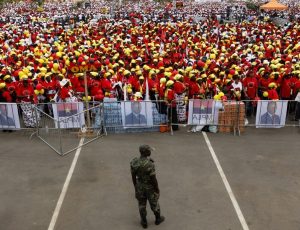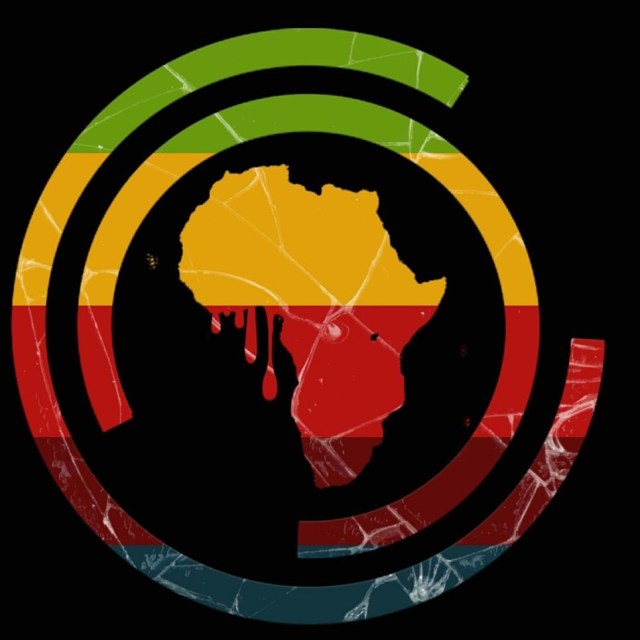Gotta Keep the Money in the Family!
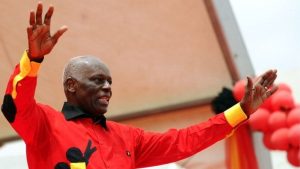
After nearly four decades in office, President José Eduardo Dos Santos is due to hand over power after Angola‘s 23 August elections.
After 38 years in power, Angola’s José Eduardo dos Santos finally looks set to step down from office. The president has stated his intention to relinquish power before, but as the 23 August elections approach, everything is pointing in the direction of his imminent departure following the polls. Many expected that when the time came, dos Santos would elevate one of his children to replace him. But instead, he handpicked Defence Minister João Lourenço to be his successor.
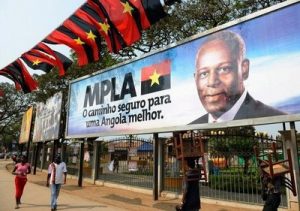
Lourenço has the backing of the ruling People’s Movement for the Liberation of Angola (MPLA) and is certain to win. The pressing question therefore is of what will happen to dos Santos and his powerful family once he is no longer president. Over the past four decades, dos Santos has not only consolidated an impressive amount of political power in his hands, but also seen close family members become the leading players in Angola‘s economy.
It is well known that economic power in Angola is concentrated in the hands of a few. But the extent to which it is controlled by close members of the ruling family may come as a surprise.
The dos Santos‘ most famous business dealings are those of the president’s eldest daughter, Isabel dos Santos. Africa’s richest woman, she currently heads the national oil company Sonangol, which forms the heart of Angola’s economy. She also has private interests in a wide range of other sectors, from telecommunications, to banking, cement and supermarkets. Whilst the majority of her businesses are based in Angola, Isabel is known to have sizeable investments overseas, most notably in Angola’s former colonial power Portugal.
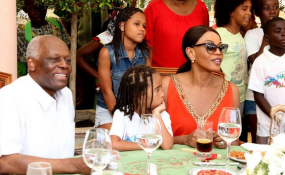
Jose Filomeno dos Santos, the president’s son, is also heavily involved in Angola’s economic life. He serves as chair of the country’s $5 billion sovereign wealth fund; he has been active in the banking sector since at least 2008; and he recently acquired 49% of Standard Bank Angola, which is part of South Africa‘s Standard Bank Group.
The president’s daughter Welwitschia José dos Santos Pego (Tchizé) and his artistic son Jose Paulino (Coreon Dú) are not left out either. Tchizé is a member of the MPLA central committee, a manager at state channel TPA 2 and shareholder in Banco Prestigio. Meanwhile, together, the two siblings run the production company Semba Comunicação, which has benefited from several multi-million-dollar contracts with the Angolan state.
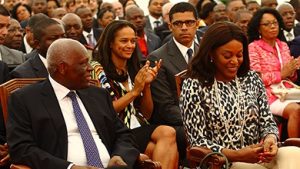
First Lady Ana Paula dos Santos, President dos Santos’ third wife, is a shareholder of Banco Sol and owns a number of smaller business ventures in Luanda, including the exclusive Deana Spa.
Finally, Eduane Danilo dos Santos, the first couple’s eldest son, part-owns that spa and has various other investments, including in Angola’s newest bank, Banco Postal de Angola.
In short, the business interests of the First Family are vast and touch on almost every area of the economy.Wealth in Angola may be even more concentrated in the hands of the few than in comparable countries. But its economy operates in similar ways to other places where state institutions are weak. Business deals and the exercise of power are typically based on relationships, and economic success comes down to whom you know.
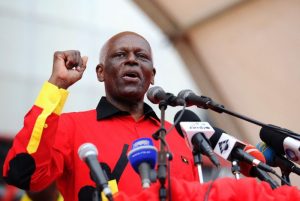
What happens then when the person you know leaves power? What will happen to the dos Santos fortune when the head of the family steps down?
Some indication may come from the fact that, earlier this year, Lourenço promised to crack down on corruption in order to repair Angola’s crisis-ridden economy. In answer to a question about how his administration would be different to that of dos Santos, the presidential candidate told the Washington Post: “We are going to make every effort to have a transparent administration. We are going to combat corruption.”
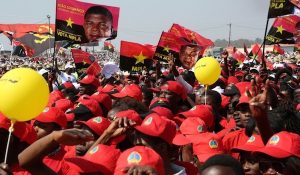
Mozambique‘s recent experience gives a sense of how such a scenario might play out. In 2014, Filipe Nyusi was elected on an anti-corruption platform. But since in office, he has been troubled by leaks connecting him to prominent fraud cases during his time as a minister. As in Angola, the Mozambican elite are connected by webs of patronage and business interests, making them vulnerable to exposure. Nyusi seems to be learning the hard way that even seeming to turn on a system from which you yourself have benefited can backfire.
When dos Santos steps down later this month, it will be a momentous symbolic moment for the country after 38 years of his rule. But that will not mean the end of his control. The hand-picked Lourenço is generally depicted as candidate for continuity, while dos Santos can in effect continue on as president of the MPLA until at least 2021. This grants him considerable powers, including power to chose parliamentary candidates.
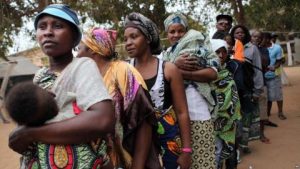
Although unclear what such protections would look like, and whether they would mean anything in the long term, we know from other cases that legal and social guarantees could be extended to family members. This was the case in Russia in 2000, when the newly-appointed president Vladimir Putin offered generous protections to outgoing president Boris Yeltsin and his family.
Because of the sheer scale of the dos Santos‘ financial interests, it is difficult to see this happening without it being at the ruling family’s expense. The dos Santos clique is no doubt aware of this. They will know that the informal guarantees that made their accumulation of wealth possible could be overturned at any time. It would come as little surprise therefore if a large proportion of their assets have already been transferred abroad, far beyond the reach of Angola‘s internal politics.
